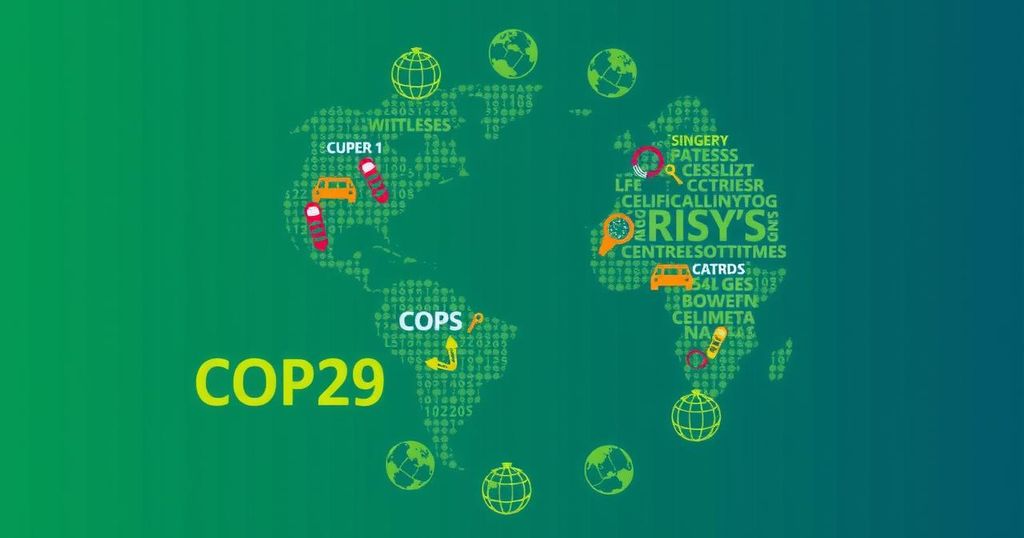At COP29, President Mukhtar Babayev announced a $300 billion climate finance plan aimed at helping developing nations, despite significant pushback regarding its adequacy. The summit, overshadowed by geopolitical tensions and uncertainties about U.S. climate policy under Trump, highlighted the challenges of global climate cooperation. Many delegations voiced concerns over the effectiveness of the agreement, which they felt failed to meet the urgent needs of vulnerable countries, complicating expectations for future climate negotiations.
At the recent COP29 climate summit in Baku, President Mukhtar Babayev faced significant challenges while attempting to secure a global climate finance agreement. He prepared two speeches anticipating both a successful deal and a potential impasse. Ultimately, despite a melancholy atmosphere overshadowed by geopolitical issues and uncertainties surrounding U.S. climate policy, Babayev announced a plan providing $300 billion annually to assist developing nations until 2035. However, reactions were mixed, with many stakeholders, particularly from vulnerable states, criticizing the deal as insufficient. Emphasizing the slow progress in international climate negotiations and the looming political changes in the United States under President Donald Trump, the summit highlighted the ongoing tensions in global climate cooperation.
The backdrop of COP29 was set against a troubling geopolitical landscape, characterized by a decline in multilateralism and rising nationalist sentiments. The summit’s proceedings were notably impacted by concerns regarding the potential withdrawal of the U.S. from key climate agreements, alongside significant global conflicts such as the war in Ukraine. These elements contributed to diminished expectations for a successful outcome, as many nations felt sidelined in the elaborate negotiations, culminating in a walkout from Least Developed Countries and small island states in frustration over their limited influence in the talks.
The COP29 summit in Baku takes place against a complicated global climate backdrop, where issues of climate financing and cooperation are critical yet contentious. The rising geopolitical tensions, particularly concerning U.S. involvement in international climate initiatives, have created a precarious situation that affects global climate strategies. The historical reliance on financial commitments from developed countries is under scrutiny, especially as nations grapple with competing priorities amid economic instability and environmental crises. The adverse effects of climate change continue to disproportionately impact poorer nations, amplifying the urgency for equitable solutions and robust climate finance frameworks.
In conclusion, the events at COP29 serve as a stark reminder of the fragile state of international climate negotiations amidst growing national interests and geopolitical conflicts. While the $300 billion deal represents a crucial step for climate finance, the dissatisfaction expressed by vulnerable countries points to a deep-seated rift that may hinder future cooperation. As the world turns its gaze towards Brazil for COP30, the challenge will be to rebuild trust and commitment among nations to address the climate crisis collaboratively and effectively.
Original Source: wmbdradio.com






